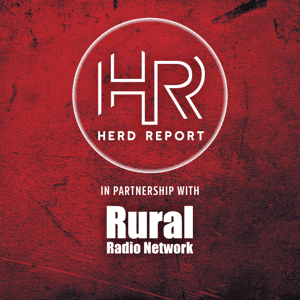If the last U.S. herd rebuild can be described as a “jackrabbit” rebuild, this current period is completely the opposite, says Oklahoma State University economist Darrell Peel.
The beef industry is on pace for a slow rebuild, and this episode of The Angus Conversation dives into the “why.”
Cattle feeder Steve Sunderman and stocker-operator Gene Copenhaver join Peel to discuss tight supplies, margin pressures and how producers are adapting. From heavier finishing weights to rising capital requirements for the next generation, the guests explore what’s shaping today’s dynamics and long-term outlook. The guests share why they’re “cautiously optimistic” and yet emphasize the importance of risk management.
HOSTS: Miranda Reiman and Mark McCully
GUESTS:
Derrell Peel is an ag econ professor at Oklahoma State University, holding the Charles Breedlove Professorship of Agribusiness in the Department of Agricultural Economics. He has served as the extension livestock marketing specialist since 1989, focusing on livestock market situation and outlook and marketing/risk management education for producers.
His work covers all areas of livestock production economics and marketing for beef cattle including meat supply chain and international cattle and beef trade with an expertise in the Mexican cattle and beef industry.
Gene Copenhaver is a fifth-generation cattleman whose family dates to the 1850s in Washington County, Va. Copenhaver currently manages his family’s stocker operation in southwest Virginia with his son, Will. He was an agriculture loan officer for 38 years and served his clients who were primarily cattle producers in five East Coast states.
Copenhaver is currently serving as National Cattlemen’s Beef Association president.
He has been married to his wife, Jodi, for more than 35 years, and they have three grown children, Brad, Will and Jaymee, and one granddaughter.
Steve Sunderman is a sixth-generation farmer rancher who works alongside his parents near Norfolk, Neb. Sunderman Family Farms is a farming, cow-calf and cattle feeding operation.
Steve has served the board of the Nebraska Cattlemen Association and is currently vice chair of the taxation committee as well as past chair of the marketing & commerce committee and past member of their executive committee. He is also a past chair and vice chair of the National Cattlemen Beef Association’s live cattle marketing committee.
Steve is a co-founder and president of Sunderman Investments, an investment firm focused on rural downtown development and value-added ag investments.
SPONSOR:
Angus Media: Are you ready to find your next influential Angus sire? Angus Journal subscribers will receive a free copy of the Angus Bull Book: Spring 2026 Angus Sire Directory, mailed right alongside their March edition. Visit www.AngusJournal.net to subscribe to the Angus Journal today.
Angus Media: A sale book isn't just a sale book. You have options. Big or small, private treaty or live auction, Angus Media’s Pasture to Publish online portal is here to serve you. Visit www.AngusMedia.org to learn more.
Don't miss news in the Angus breed. Visit www.AngusJournal.net and subscribe to the AJ Daily e-newsletter and our monthly magazine, the Angus Journal.




































